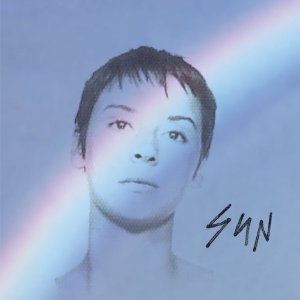 It’s a shock to realise that it’s 6 years since Cat Power aka Chan Marshall last put out an album of original material but the records in the bookcase tell me so. There was ‘Jukebox’ in the meantime, not for first time Chan singing other people’s songs. She does covers better than most anyone, but good though they are, they pale compared to Chan’s own emotions laid confessional bare. Although no longer the heavy drinking train wreck of yore, Chan’s personal life is still the stuff of legend. Don’t believe me? Check out her recent interviews in the Guardian and Stool Pigeon. And in fairness, it’s so closely connected to her music that it simply has to taken account of. The newly acquired cropped hair is almost certainly some mark of yet again being shorn of her old life, moving on after her breakup with Giovanni Ribisi, with whom she had been playing happy families since 2006, playing step-mom to his teenage daughter. Happily, she seems to developing ways of coping as she gets older, able to iron out the rough patches. Given the telescope of history, that was certainly the way the last time she toured in the UK four years ago, singing about a situation rather than ‘being it’ in front of of our eyes and bleeding it all over the stage.
It’s a shock to realise that it’s 6 years since Cat Power aka Chan Marshall last put out an album of original material but the records in the bookcase tell me so. There was ‘Jukebox’ in the meantime, not for first time Chan singing other people’s songs. She does covers better than most anyone, but good though they are, they pale compared to Chan’s own emotions laid confessional bare. Although no longer the heavy drinking train wreck of yore, Chan’s personal life is still the stuff of legend. Don’t believe me? Check out her recent interviews in the Guardian and Stool Pigeon. And in fairness, it’s so closely connected to her music that it simply has to taken account of. The newly acquired cropped hair is almost certainly some mark of yet again being shorn of her old life, moving on after her breakup with Giovanni Ribisi, with whom she had been playing happy families since 2006, playing step-mom to his teenage daughter. Happily, she seems to developing ways of coping as she gets older, able to iron out the rough patches. Given the telescope of history, that was certainly the way the last time she toured in the UK four years ago, singing about a situation rather than ‘being it’ in front of of our eyes and bleeding it all over the stage.
All that said, anyone who is hoping for more of her angsty self-therapy will be in no way disappointed with Sun. Minutes into the album, the first track ‘Cherokee’ manages a couple of lines about how wonderful the love was before getting right in there with “I never knew pain like this / when everything dies”. The music, despite the heart-string-scratching piano, is oddly upbeat, with a jaunty and over-saturated percussiveness. The production value carries over into the next track, the title track ‘Sun’, and it feels fresh, experimental. It’s so out there that it loops right back to the low-fi rumble of 10 year old tracks such as ‘He War’ on the You Are Free album.
We are officially told that Chan has turned away from her forays into Memphis Soul and Delta Blues. I’m not entirely sure, it’s more as though those experiments now form the boundaries of the room, as do those moments of reversion to sparse bareness, leaving absolutely everything in between in play. It’s one of the strengths of this album, that whatever period Chan is your favourite, this is going to work for you.
‘3,6,9’ has quasi-pop production – is that auto-tune I hear, tastefully distorting the double tracked vocal? Meantime on ‘Human Being’ you can smell the hot dust of some bare wood studio. The album closes out with ‘Peace And Love’ – a 60’s protest song re-imagined for the twitter generation, and with it’s na-na-na chorus, frankly not my favourite.
Nearly everything is 100% sung, played, recorded and produced by Chan, some of it in the studio she has built in Malibu. There’s one guest vocal, some young chap called Iggy Pop on ‘Nothin’ But Time’. Apart from that, the single exception is ‘Ruin’, which has the full turn out of her old touring band including Greg Foreman on keys. She’s played a trick here, an inadvertent one that has taken me some getting over. ‘Ruin’, with its samba beats and haunting travelogue story telling, is the strongest track on the album by a country mile. In fact it’s one of the best songs I’ve heard in months. The glitch is that it got released as a teaser many weeks before the rest of the tracks, and it’s left me in a quandary. Does it sound so great because it’s the one that has the input of other musicians, or due to by-now easy familiarity? After many, many listens to the album in toto, the other tracks have fallen in line, and it’s clear that Chan on her own can indeed rival the full outfit. Sobering and impressive.
[rating: 4]



